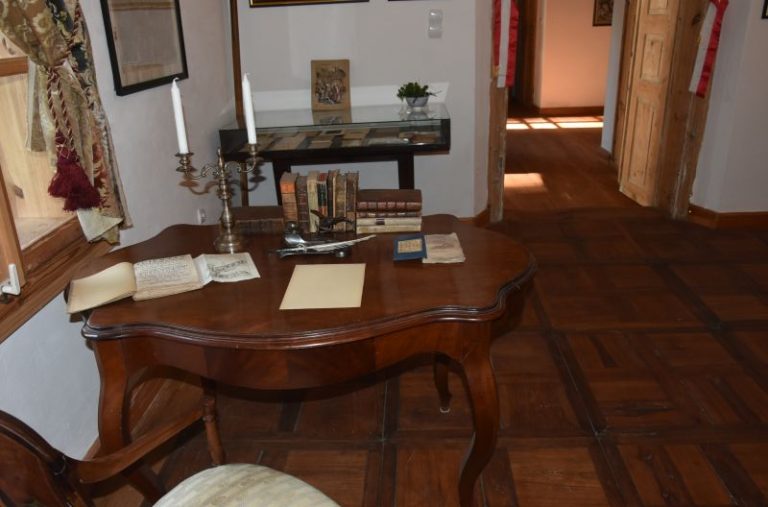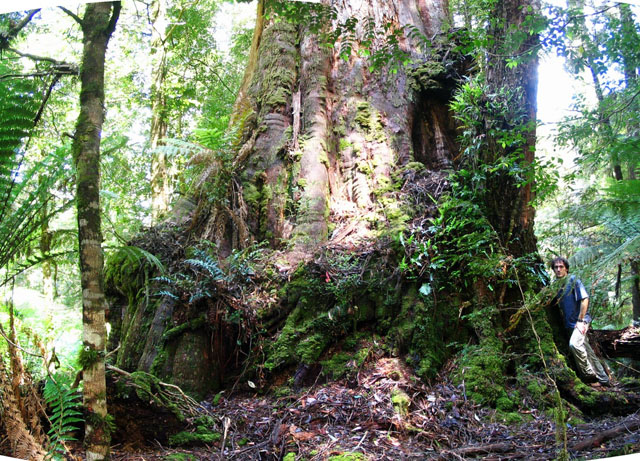In celebration of “2023 the Year of Strzelecki”, Kosciuszko Heritage Inc (KHI) is organizing an expedition of the Aboriginal Choir Djinama Yiliga to Poland, visiting Poznań (including Głuszyna), Warsaw and Kraków. The Choir was established in 2019 on the initiative of the excellent painter Cheryl Davison-Overton, with roots in the Monaro Ngarigo tribe. The Ngarigo are probably the only indigenous people in Australia where there is a matriarchy.The collective power is performed by 4 women – Aunties – the Elders – representing 4 Ngarigo clans. One of them is Aunty Iris White, an older sister of Cheryl.
Iris and Cheryl, when talking about their tribal affiliation, emphasize the origin of Ngarigo. The Ngarigo people are formally known as Monaro Ngarigo, which denotes their territorial affiliation. Its area stretched from the Sapphire Coast (South Coast) to the summit of Mt Kosciuszko, about 16,000 square kms!
For hundreds, even thousands of years, they peregrinated over ‘Country’, spending summer in the mountains, feeding on nutritious, protein-rich bogong moths, returning to the coast in the winter to eat seafood. In my documentary, “Ngarigo in Krakow” I related their dramatic fate.
During the era of invasion and conquest, indigenous peoples began to die en masse as a result of introduced diseases such as syphilis, tuberculosis, smallpox and influenza; diseases foreign to their own immune system. In this era, their freedom and homes were seized. The colonisers built reserves, rounded up the Aborigines, confined them behind barbed wire and controlled every aspect of their lives.
They were separated by skin color. Those with darker skins were held on reservations, fair-skinned individuals were herded into big cities to “assimilate” but, in fact, to provide a source of cheap labor – serving the whites. Families were pitilessly and heartlessly torn apart en masse. Those exiled to big cities were not permitted to visit their fathers and mothers without the express permission of Reservation ‘Overseers’. Conversation in their native language was forbidden. Tragically, over generations, their native traditions, culture and language was lost. With similar experiences, we from invaded, partitioned, occupied and oppressed Poland shared our heartfelt empathy with our Aboriginal friends. However, because families mostly remained intact, it was easier for us to keep our native tongue.
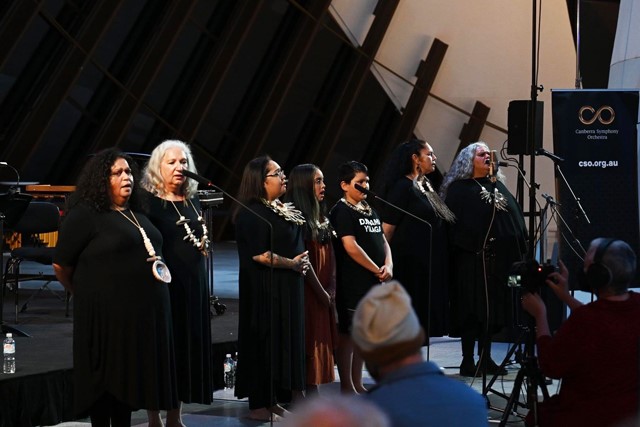
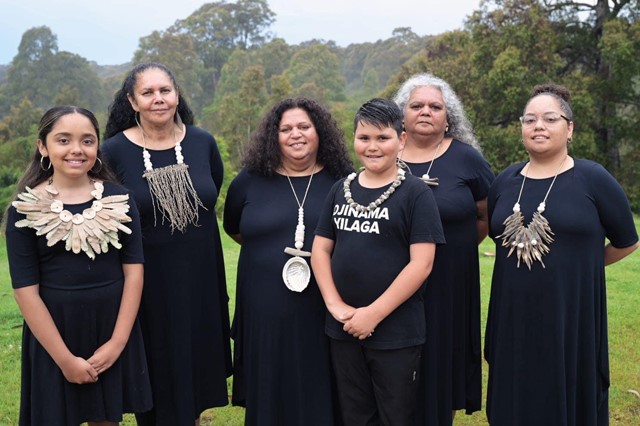
Several hundred tribal languages became extinct. Children from mixed marriages, alienated from all tribal and family links, confined on ‘missions’, cut off from their native rites and customs, they were forcibly ‘assimilated’.
When the Reservations closed, the inhabitants were abandoned. Most settled on the Sapphire Coast, where they eventually intermarried with the indigenous peoples of the coast.
Video.Listen to the breathtaking singing
The Snowy Mountains together with Kościuszko and local traditions remained in the memory of only a few Ngarigo individuals. Nowadays, only some of the elders “pilgrimage” to Jindabyne as honorary advisors to Kosciuszko National Parks. After 250 years, tribal languages have almost been completely lost. Only single words or phrases such as greetings have been preserved here and there.
Attempts to revive the languages have only recently been undertaken. Community led choir serves as a mechanism to revitalise language through song. As it happens, around the Sapphire Coast, Dhurga serves as the lingua franca of several Yuin tribes. It was not until 2020 that The Dhurga Dictionary and Learners Grammar was published.
Before the language enters schools, it finds supporters among choristers, their families, neighbours, spectators and supporters. The choir consists of the elderly, youth and children. It’s an intergenerational choir which is its strength. Djinama Yiliga means Happy Celebration. The choir made its debut at the Four Winds Festival in Bermagui. Their songs have been filmed as part of the National Museum of Australia’s Cultural Connections programme. They perform on Australia’s most prestigious stages, recently earning applause at the opening of the new wing of the NSW Art Gallery in Sydney. Poland will be their first overseas trip.
For Cheryl Davison, founder and director of the choir, it will be her second visit to Poland. In 2017, together with Aunty Iris, her older sister, and other Ngarigo delegates, we had fun in Krakow during the celebration of the Kosciuszko Bicentenary. We celebrated at the Kościuszko Mound and at Wawel Cathedral, laid a wreath at Kościuszko’s sarcophagus, and met up with President Andrzej Duda and the First Lady at Wawel Gardens.
During an international conference “Integration around Thaddeus Kosciuszko” Iris White gave a memorable speech. After a visit to a Historical Museum where she heard so much about Kosciuszko, she joked during a conference session: “what do I do, now I come back to my husband to tell him that I have fallen in love with another man.” Luckily, the camera was on so we can listen to this statement any time.

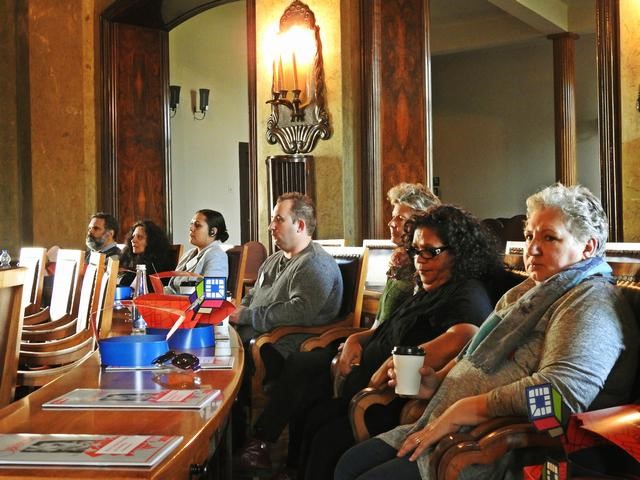
And now the choir is working on its repertoire to be presented in Poland. We are waiting for the promised song lyrics. Overall, Djinama Yiliga sings about renewing cultural identity, about finding one’s place in the world; paying homage to tribal elders, the memory of ancestors and ancient stories. By singing their songs. they hope to heal intergenerational wounds that arose from the traumas of the colonial era, including the problem of the “stolen generation”. They also sing about contemporary, dramatic events, such as catastrophic fires. Djinama Yiliga feel proud and honoured to share their beautiful language through songs. Here we learn a new word: ganbi means fire. Together with our choristers friends – we will learn more.
The 10-person Aboriginal group is to visit Kraków, Warsaw and Poznań, and to give several performances in each of these cities. More importantly, Aunty Iris is expected to talk about the culture and customs of the Monaro-Ngarigo people, who are, after all, the traditional custodians of Mount Kosciuszko ‘country’. Mt Kościuszko is our common heritage. We hope that the May trip to Poland with vistas of blossoming spring flowers will remain eternally in their heart, soul and memory.
Ernestyna Skurjat-Kozek
Felix Molski
Source: https://www.zrobtosam.com/PulsPol/Puls3/index.php?sekcja=1&arty_id=22596
